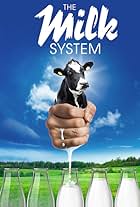Advanced search
- TITLES
- NAMES
- COLLABORATIONS
Search filters
Enter full date
to
or just enter yyyy, or yyyy-mm below
to
to
to
Exclude
Only includes titles with the selected topics
to
In minutes
to
1-14 of 14
- Alcohol: No substance in the world seems so familiar to us and is so incredibly diverse in its effect. Alcohol is available everywhere and this particular molecule has the power to affect all 200 billion neurons of our human brain in completely different ways. But hardly anyone calls alcohol a drug despite its psychoactive and cell-destroying effect. Why do we tolerate the death of three million people every year? Have we turned a blind eye to the dangers and risks for thousands of years? What role does the powerful alcohol industry play with an annual turnover of 1.2 trillion euros in this on-going concealment? The author, who himself enjoys having a drink, looks into the question why we drink at all, what alcohol does to us and to what extent the alcohol industry influences society and politics. He travels around the world from Germany via England to Nigeria to detect aggressive trading practices of the global alcohol industry seeking growth in new markets at all costs. He also visits Iceland, which successfully made the turnaround: Where 20 years ago hordes of drunks roamed the streets, young people today master their need for relaxation and life stimulants without alcohol. The film has no intention to point a moral finger but nevertheless will significantly change the drinking habits of the viewer.
- There's one thing milk stands for - health. It's seen as natural and nutrient-rich. But is it really that healthy? We set out to take a critical look at the milk system. Along the way we'll meet farmers, dairy owners, politicians, lobbyists, NGOs, scientists. The film uncovers surprising truths behind the system. Who profits at whose cost? Does the system have a future and are there alternatives?
- An examination of Venice, Italy, its rise as a tourist attraction and its linked decline as a functioning city.
- Bluesbrothers in Wheelchairs... Valentin is pretty pissed off. After being confined to a wheelchair because of a snowboard accident, his mother forces him to participate in a theater project for people with disabilities - the diapers in his room and the initially arrogant roommate add insult to injury. The one and only redeeming feature of life at the facility for the handicapped is the lovely caretaker, Mira. Unfortunately Mira is going steady with a local slime-ball, Marc. Valentin decides to enter the fray against his sturdy and prosperous rival, and even carries it a step further: he decides to rob the gas station at which Marc works. With fervent enthusiasm, his house mates Lukas and Titus offer themselves as accomplices. With this the freshly hatched trio, heads off to procure a gun. Valentin discovers that although handicapped, his mates are hardly inept; they not only manage to pull off their heist, they become friends in the process. As we come to a showdown between the gas pumps, we arrive at a final question - "to be or not to be."
- As thousands of migrants attempt to cross the French-Italian border on foot through treacherous mountain routes, the state cracks down on the local communities that come to their aid in this revealing look at an unfolding human rights crisis.
- The tiny community at the edge of Europe is engaged in a desperate fight for dignity, and for solidarity with those who many consider the cause of the ongoing crisis: the African boat people.
- In the light of the current transformations within the global power structure, I WANT TO SEE THE MANAGER traces the linkage of economic ascent and decline in seven paradigmatic episodes. India, Bolivia, China, USA, Italy, Thailand, Venezuela - each place contains fragments of another; each episode bears testament to the hopes and fears of its protagonists. By juxtaposing these local experiences in the face of global economy, the film questions the notion of rise and decay.
- Silvio, One of us, shows the current political mood in Italy and trough some portraits investigates the phenomenon of how far Berlusconi and his politics mirror Italy.
- In a lost village in the Peruvian Andes a young girl is waiting for the new books to arrive. They are carried in a rucksack by a librarian, walking in the mountains, between the sky and the clouds. Rural libraries in Peru are made up of a few dozen books that, once read, are exchanged for others between communities. Books walk as people walk.
- On 1 June 2009 a passenger plane crashed into the Atlantic Ocean. My cousin Georg, returning from Brazil, was among the 228 dead. He grew up as an adopted child in a small Italian village in the midst of the Dolomites; he had travelled to the city of Salvador da Bahia on the coast of Brazil in search of his biological mother. Seven years later his adoptive brother, Markus, crosses the ocean to follow Georg's footprints into his own past.












